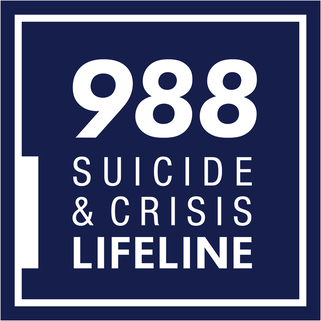|
By ABCS RCM
Childhood and young adulthood is sometimes a difficult time for individuals. This is a period in a person’s life when substantial physical and neurological change occurs due to puberty as well as other social changes. Additional challenges appear due to the fact that many of these changes are beyond the person’s control. Naturally, these quick and seemingly unpredictable changes create a level of mental stress in children and teenagers. Puberty or a Mental Health Condition: Children can experience a variety of mental health conditions including: anxiety disorders, attention-deficit/hyperactivity disorder (ADHD), Autism spectrum disorder (ASD), eating disorders and mood disorders such as depression and bipolar disorder. When children develop mental health conditions, the illnesses are sometimes expressed differently. For example, depressed children will often show more irritability than depressed adults, who more typically show sadness. Only a trained healthcare professional can properly diagnose and treat these conditions. As a general trend, researchers are seeing higher rates of anxiety, depression and other mental health condition in children and teenagers. Among the ages of 6 to 17 years, who have been diagnosed with anxiety or depression, the rates increased from 5.4 percent in 2003 to 8.4 percent in 2012. However, in children and teenagers, the normal transition to adulthood sometimes generates behavior that resembles a mental illness. It is normal for teenagers to express some irritability, annoyance and anger. Due to this fact, parents find that it is not always easy to distinguish between the moodiness created by puberty and mental health conditions that may require the attention of a mental health professional. So parents sometimes are not sure if their child’s behavior is the result of issues related to puberty or a more serious mental health condition. Questions to Ask: If parents have questions about their child’s behavior, here are some questions to consider. These questions provide a good starting point for differentiating adolescent growing pains from a more serious problem that requires professional help. [1] Does the child have at least one good friend? If a child has no friends, this is often a sign of isolation? [2] Do they have at least one adult they can talk to such as a parent, another relative, a teacher or someone? [3] Does the child have at least one activity that engages them? [4] Is the child never happy or content? [5] Are they engaging in self-harming activities. [6] Are they engaging in dangerous activities such as using alcohol, drugs and other toxic substances. Signs and Symptoms: Beyond asking the previous questions, there are some behavioral signs that parents should be aware of for children and teenagers. If these behavioral signs and symptoms last for weeks or months, and if these issues interfere with the child’s daily life at home and at school or with friends; parents should contact a mental health professional. Younger children may benefit from a mental health evaluation and treatment if they: * Frequent tantrums or are intensely irritable much of the time. * Are in constant motion and cannot sit quietly (except when they are watching videos or playing video games). * Sleep too much or too little, have frequent nightmares or seem sleepy during the day. * Frequent stomachaches or headaches with no known medical cause. * Are not interested in playing with other children or have difficulty making friends. * Struggle academically or have experienced a recent decline in grades. * Often check things many times out of fear that something bad may happen. For older children and teenagers, the symptoms are little different. They may benefit from a mental health evaluation if they: * Have lost interest in things that they used to enjoy. * Sleep too much or too little, or seem sleepy throughout the day. * Are spending more and more time alone, and avoid social activities with friends or family. * Fear gaining weight, or diet or exercise excessively. * Engage in self-harm behaviors including smoking, drinking alcohol or using drugs. * Engage in risky or destructive behavior alone or with friends. * Have experienced thoughts of suicide. * Have periods of highly elevated energy and activity, and require much less sleep than usual. Closing Thoughts: Research shows that parents can have a positive influence on how their children process and handle stress. In this way, parents can help to minimizing the likelihood of mental health difficulties ever occurring. Parents should strive to create a household that develops resilience, self-control, love and warmth in children. For additional questions about mental health conditions in children and teenagers please contact the staff at Providers For Healthy Living. They have four convenient office locations in the Columbus Metro area. Their mental health programs provide a full range of treatment options for both children and adults. Follow them on Twitter and Facebook.
0 Comments
Leave a Reply. |
|
Please DO NOT use this email address for medication refill requests or for emergency situations.
Click here for refill requests instead of using email: Medication Refill Request Form If you have a medical emergency, email is never the appropriate way to communicate your needs, and you should instead call 911 or go to the nearest ER. If you are having suicidal thoughts and need to speak to someone immediately, you can contact Suicide Prevention Hotline at the number (and link) below. [email protected]
Communications via email are not secure. Although it is unlikely, there is a possibility that the information you include in an email can be intercepted and read by other parties besides the person to whom it is addressed. |
|
2024 Providers for Healthy Living | All Rights Reserved
|

